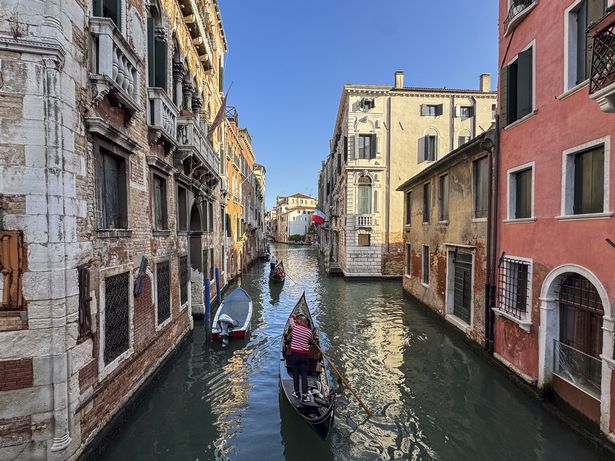A ‘tourist tax’ should be imposed on millions of visitors who pour into the Lake District every year, according to a new report.
Experts highlighted environmental damage caused to communities by the sheer number of tourists. European countries impose a tourist levy in popular destinations, including Italy, Greece and Germany. It has proven controversial in Venice, where visitors pay a five Euros (£4.20) fee when booked in advance, and 10 Euros if paid on the day (£8.40).
The first coastal tourist tax in the UK, set to be introduced in parts of Dorset, was put on hold following opposition from hotels. But the Scottish Government introduced tourism tax powers this year, and the Welsh Government has similar plans.

(
Anadolu via Getty Images)
The impact of tourism in the Lakes includes sewage discharge, high carbon emissions, congestion and damage to the landscape from cars, with more than 18m visitors per year. The Friends of the Lake District charity recognised huge benefits that tourism brings to the local economy. But it argued that costs arise when the number of visitors exceeds infrastructure capacity.
Sustainable tourism specialist Dr Davina Stanford prepared a report for the charity called ‘Who Pays for the Lake District?’. Released on Wednesday, it gave different ways for money to be raised, based on case studies across Europe.
They include a tax on overnight stays, a visitor vehicle levy charge, a visitor parking charge, or a tourist improvement district. Friends of the Lake District’s Policy Officer Dr Kate Willshaw said: “We know that tourism plays a vital role in supporting local economies. But we also know, from this research, it brings with it a cost that is not currently being met.”

The visitor tax options should be investigated by local authorities and the Lake District National Park Authority, according to the charity. Dr Kate Willshaw added: “We believe that we need to explore the various schemes. They could be implemented to address the impacts of tourism and unlock investment in vital areas like public transport.”
Dr Rose O’Neill, Chief Executive of Campaign for National Parks, said they were one of the country’s biggest success stories, bringing huge benefits to health and wellbeing, and billions of pounds and thousands of jobs to support rural economies. She added: “The report shows that the hundred million visits to National Parks each year could become a force for recovery.”
A 2019 report by the Institute for Fiscal Studies estimated that a £1 per head tourism levy, if introduced in England, could instantly raise revenue of £420m. The Scottish Parliament voted in favour of a tourist levy earlier this year. The Visitor Levy (Scotland) Act allows local authorities in Scotland to charge a levy on short-stay accommodation.
Edinburgh City council is already at work on a levy, which is expected to come into force in 2026. The Welsh Government also plans to introduce a tourist tax The report is available at Who Pays for the Lake District?
This post was originally published on here







